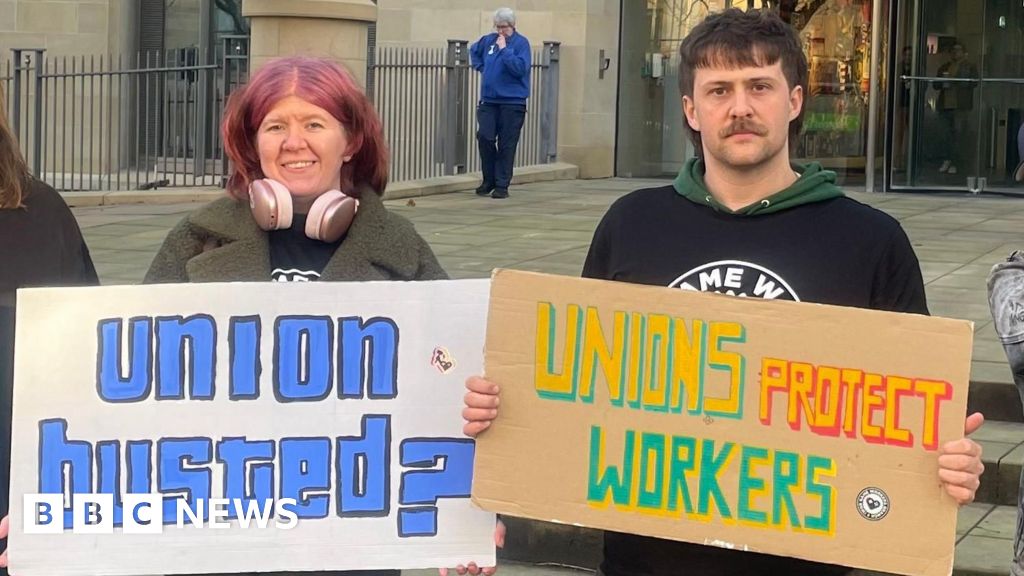Labour under pressure to be more radical about reforming private renting | Housing
- Politics
- June 19, 2024
- No Comment
- 129
Labour is facing pressure to deliver more radical reforms of private renting amid fears landlords will find new ways to evict tenants despite the party confirming it would end no-fault evictions, ban bidding wars and introduce time limits to fix potentially lethal mould.
In a campaign push aimed at the “rip-off private rented sector”, Labour’s deputy leader, Angela Rayner, and the shadow chancellor, Rachel Reeves, claimed private renters would be £250-a-year better off under a Labour government after it forces landlords to improve the energy efficiency of leaky rental homes.
Private landlords would no longer be able to auction rented homes to the highest bidder and requests for upfront rent will be capped, although it is not clear at what level. Labour has reiterated its pledge to “immediately ban no-fault evictions” and said it will “crack down on unscrupulous landlords ripping off tenants with extortionate rents and lurid living conditions”.
But the party’s commitments to the UK’s 4.5 million renting households do not yet provide the security many renters want and they fear a back door to evictions could be left ajar. Demand continues to outstrip supply with 15 households vying for every private rented property, according to Zoopla – twice the rate before the pandemic.
“If this crisis is to be properly tackled we’ll need to see more detail as to how Labour intends to deliver security of tenure for private renters,” said Tom Darling, campaign manager of the Renters’ Reform Coalition. “In particular, how will they prevent back doors to no-fault evictions through new eviction grounds and how they plan to tackle evictions through unaffordable rent hikes.”
Rayner said the party “will call time on a decade of Tory vested interest and put renters first” claiming “unscrupulous landlords [are] strangling growth”.
Labour said it would “end rental bidding wars so landlords can no longer pit hopeful renters against each other in a fight to see who can offer up a bigger sum”. The party has previously proposed forcing landlords to advertise a rent price and banning them from encouraging tenants to bid higher.
It could follow New Zealand, which in 2021 announced landlords could not invite or encourage prospective tenants to pay more rent than the advertised rent, nor run an auction. But prospective tenants can still voluntarily offer to pay more than the stated amount of rent and a landlord may accept this offer.
Polly Neate, the chief executive of the housing charity Shelter, welcomed Labour’s commitment “to making renting fairer” but called for limits to in-tenancy rent increases and longer notice periods.
The London Renters Union said “none of Labour’s new measures would protect tenants facing inflation-busting rent hikes and outrageous asking prices”.
after newsletter promotion
“The party is right to highlight the problem of rising rents, but today’s announcements will not offer much hope to the millions living with the constant fear of being driven out of their communities by unaffordable rents,” said Jae Vail, a spokesperson for the campaign group, which is calling for rent controls after London rent inflation hit 13% last year. “Labour must prioritise our right to a home over landlords’ profits and commit to real rent regulation.”
Labour has ruled out rent caps. But it said it would require all landlords to meet stringent energy efficiency standards by 2030 and would extend Awaab’s law to the private rented sector. The government has been consulting on time limits for social housing landlords to fix mould and damp following the 2020 death from respiratory disease of two-year-old Awaab Ishak in social housing in Rochdale.
In 2023, about 160,000 private rented homes in England were affected by severe damp and mould, according to estimates derived from the English Housing Survey.
#Labour #pressure #radical #reforming #private #renting #Housing









